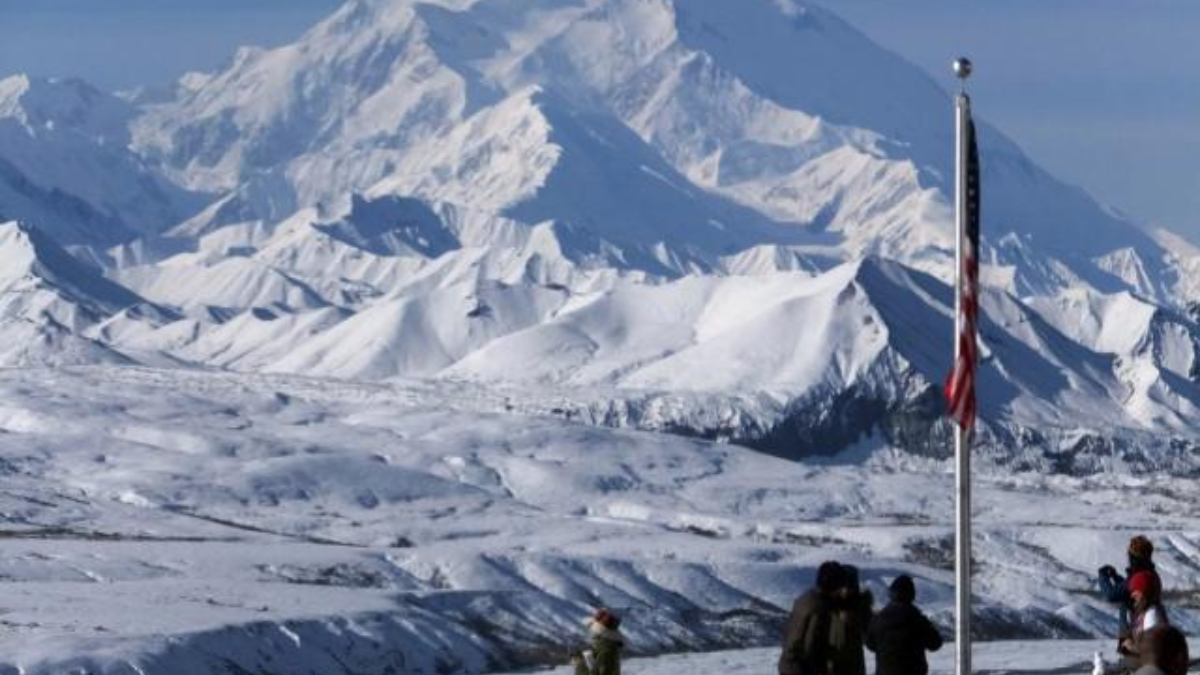A recent proposal by former President Donald Trump to rename Alaska’s iconic Denali back to its former name, Mount McKinley, has sparked a heated debate. The mountain, revered for its cultural significance and natural beauty, is central to Alaska’s identity. Trump’s suggestion has reignited discussions about historical names, cultural heritage, and political influence over geographic landmarks.
History of Denali’s Name
The peak, standing at 20,310 feet, is the tallest mountain in North America. It has been called “Denali” for centuries by the Koyukon Athabascans, an Indigenous group in Alaska. Denali translates to “The High One,” reflecting the mountain’s towering stature and spiritual importance.
In 1896, a prospector named the peak “Mount McKinley” in support of then-presidential candidate William McKinley, who never visited Alaska. The name was officially adopted in 1917 and remained until 2015, when President Barack Obama restored the name Denali to honor Alaska’s Indigenous heritage.
Trump’s Proposal
During a recent rally, Trump suggested reverting Denali to Mount McKinley, calling the name change “an insult to Ohio,” McKinley’s home state. His proposal aligns with past efforts by Ohio lawmakers who opposed the 2015 renaming. Trump’s stance has drawn support from some conservatives but has faced criticism from Alaskan leaders and Native communities.
Cultural and Political Implications
Renaming the mountain again would carry significant cultural and political implications. For Alaska Natives, Denali represents more than a landmark; it’s a symbol of their heritage and connection to the land. Changing its name back to Mount McKinley could be seen as disregarding Indigenous voices and history.
To learn more about the cultural significance of Denali, visit the National Park Service’s official page on Denali.
From a political perspective, Trump’s proposal reflects ongoing cultural clashes over historical names and monuments in the United States. It raises questions about whose narratives are prioritized in public spaces and how decisions about such landmarks should be made.
Public Reaction
The proposal has sparked mixed reactions. Alaskan officials, including members of both political parties, have largely opposed the idea, emphasizing the importance of preserving Indigenous heritage. Meanwhile, some supporters argue that Mount McKinley honors a U.S. president and represents a piece of American history.
“Denali’s name is more than a word; it’s a story of resilience and respect,” said an Alaskan Native leader. “Reverting the name disregards the cultural significance it holds for our people.”
Conclusion
Trump’s proposal to rename Denali to Mount McKinley has reignited a complex debate over history, culture, and identity. While some see it as a way to honor a former president, others view it as a step backward in recognizing and respecting Indigenous heritage. As the discussion continues, Denali remains a symbol of both natural majesty and cultural significance, standing tall amid the controversy.
Disclaimer – Our team has carefully fact-checked this article to make sure it’s accurate and free from any misinformation. We’re dedicated to keeping our content honest and reliable for our readers.








